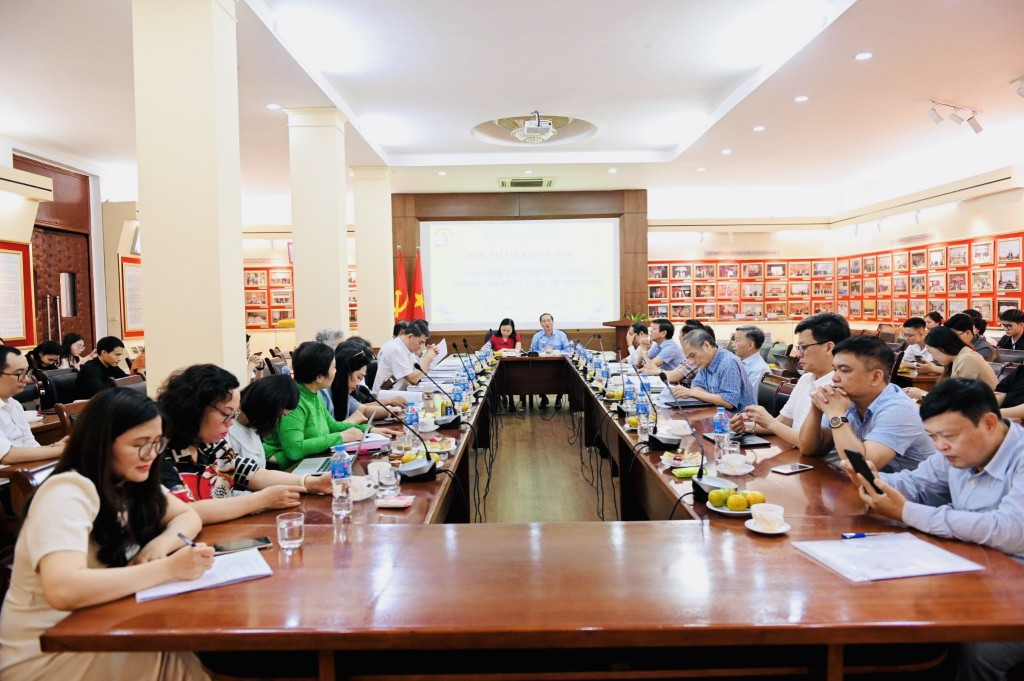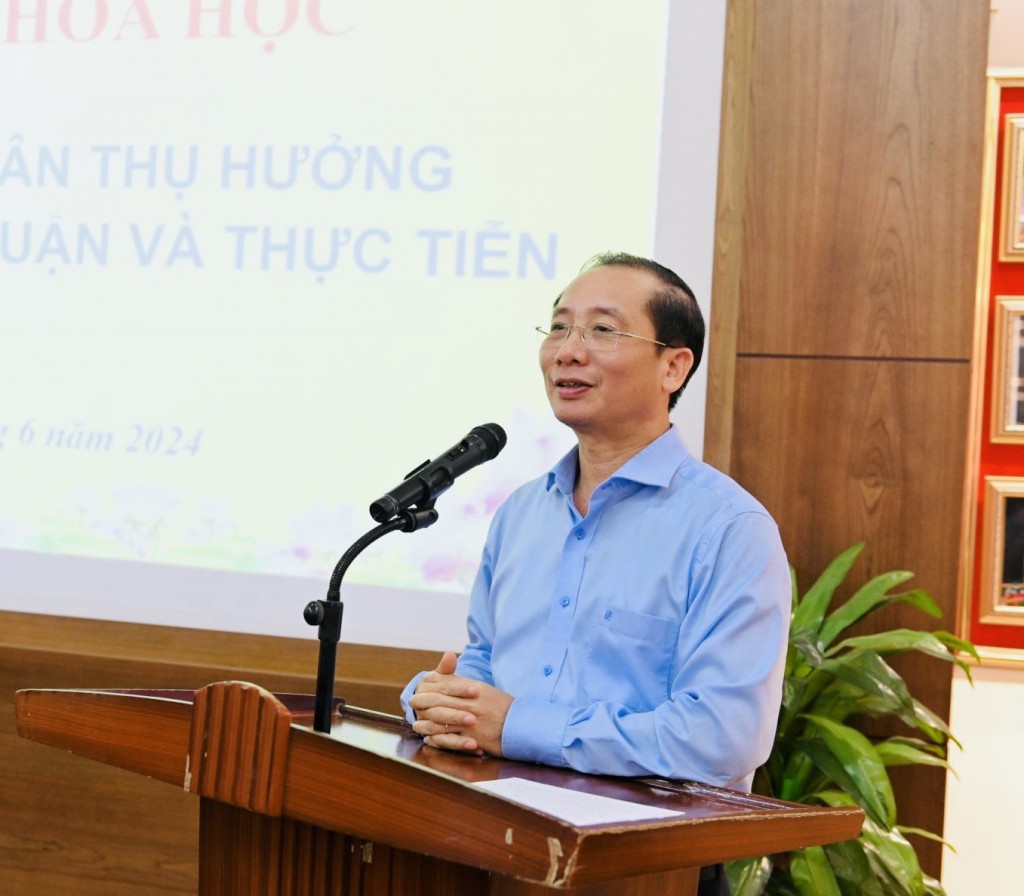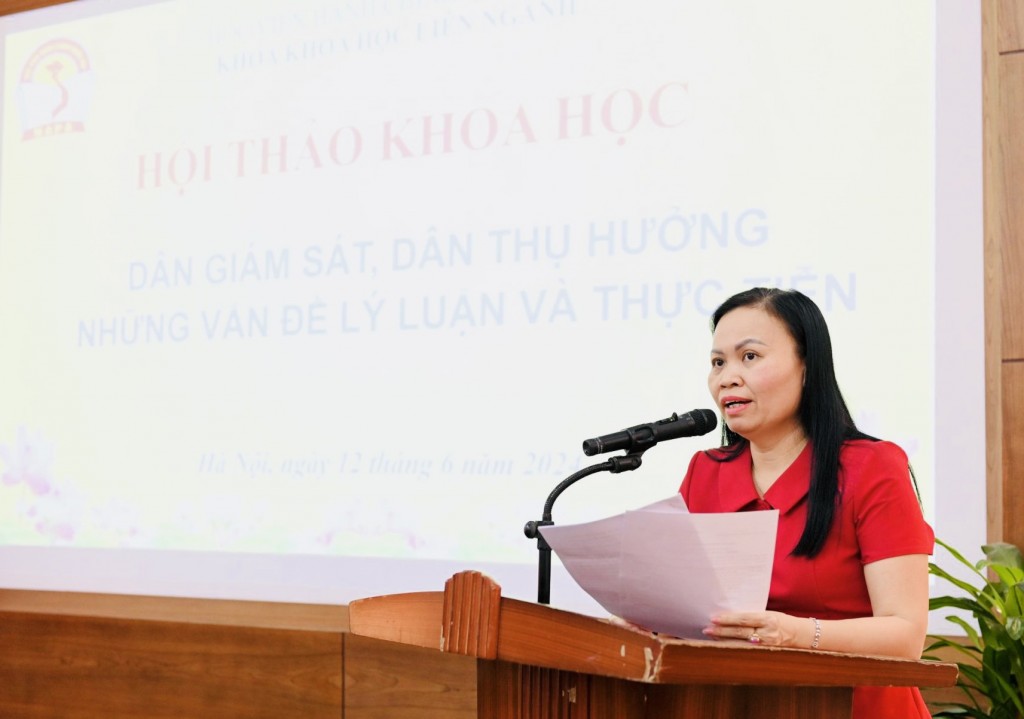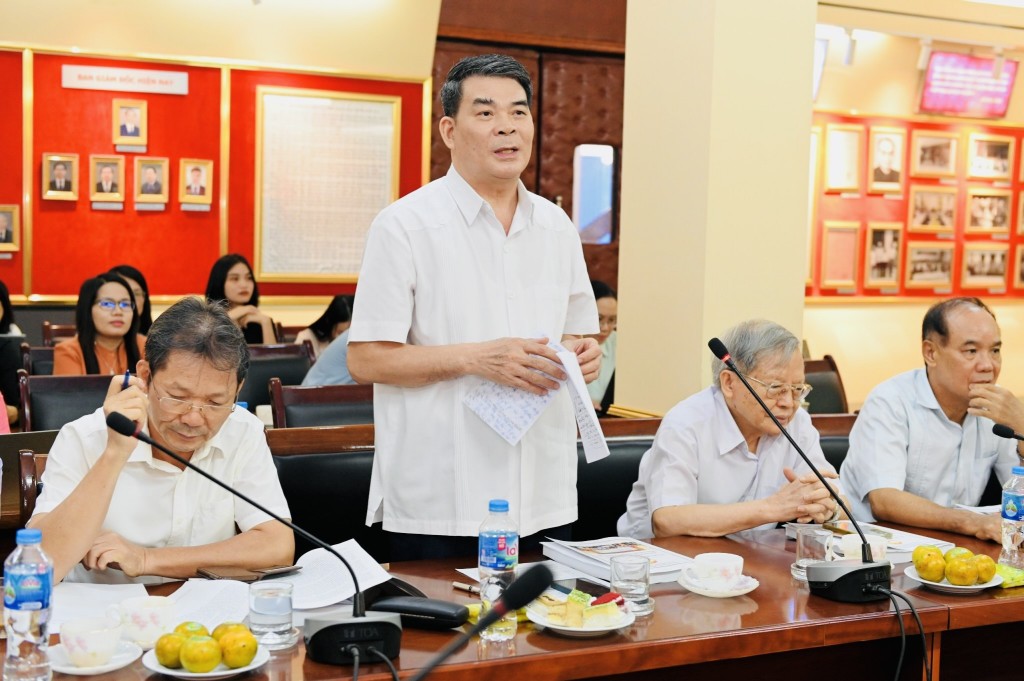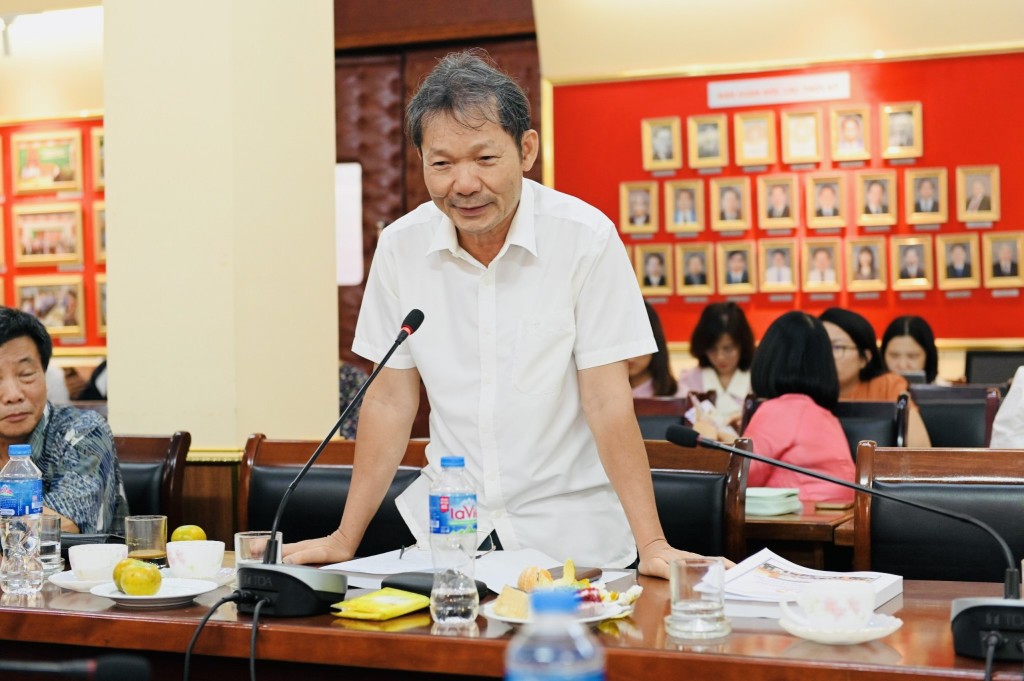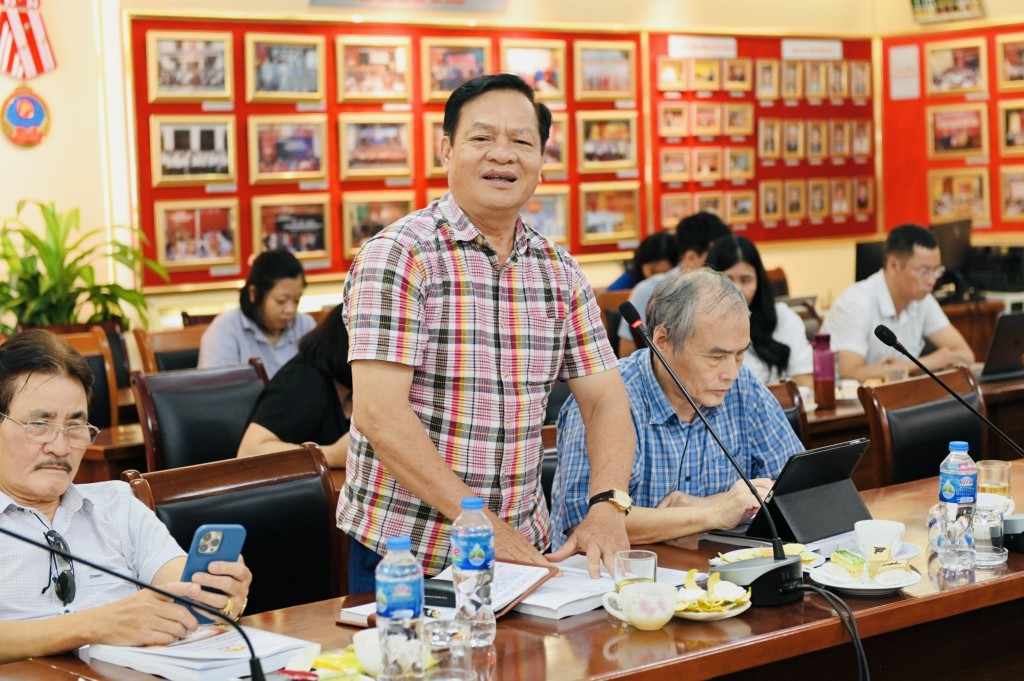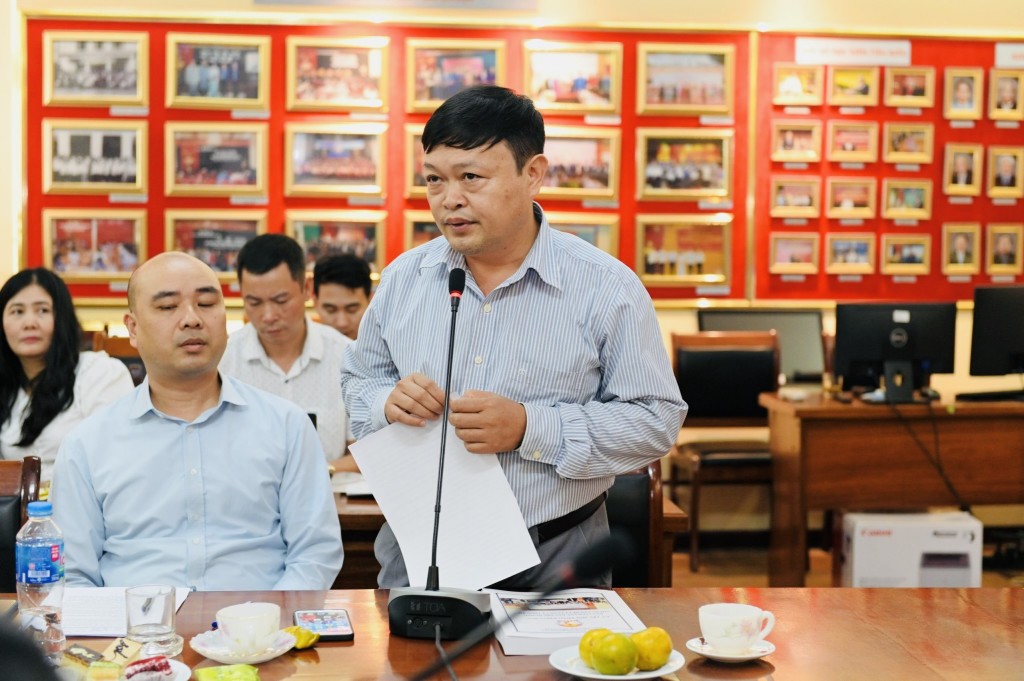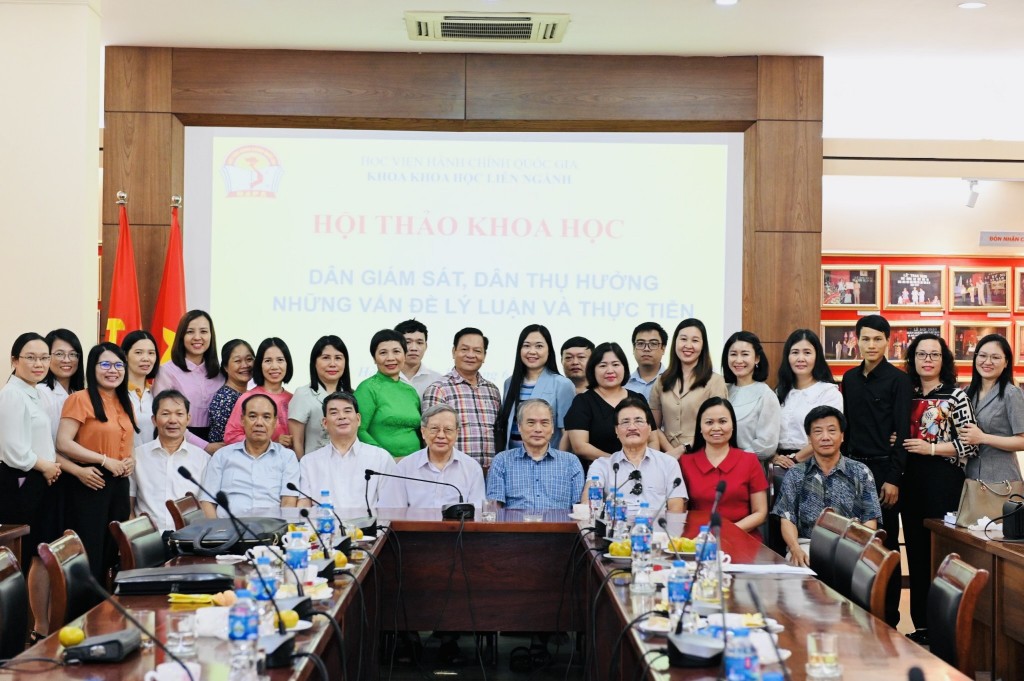On June 12, 2024, the Faculty of Interdisciplinary Sciences at the National Academy of Public Administration (NAPA) organized a workshop titled “People Supervise, People Benefit – Theoretical and Practical Issues”. Assoc. Prof. Dr. Nguyen Thi Thu Ha, Dean of the Faculty of Interdisciplinary Sciences, chaired the workshop.
The workshop was attended by Assoc. Prof. Dr. Nguyen Ba Chien, NAPA President; Dr. Nguyen Tien Dinh, former Vice Minister of Home Affairs; representatives of NAPA faculties, departments, and units; experts, managers, and academics from inside and outside NAPA; leaders, lecturers, trainees, and students of the Faculty of Interdisciplinary Sciences.
The workshop was held both in person and online, reaching NAPA’s branches in Ho Chi Minh City, Dak Lak province, and Quang Nam province.
In his opening remarks, Assoc. Prof. Dr. Nguyen Ba Chien, NAPA President, expressed his gratitude to the delegates, experts, and academics for their contributions and participation in the workshop. With 40 papers published in the workshop proceedings and a large number of academics in attendance, the high level of interest in the workshop’s topic was evident. He acknowledged the thorough preparation by the Faculty of Interdisciplinary Sciences and expressed his hope for further discussions and research on the theoretical and practical aspects of people’s supervision and benefits in Viet Nam.
In her opening remarks, Assoc. Prof. Dr. Nguyen Thi Thu Ha emphasized that people are the center and the subject of the renovation, construction, and defense of the country. All policies must stem from the lives, aspirations, rights, and legitimate interests of the people, aiming for their happiness and prosperity. This is a new point, a concise message of the Party about “people” at the 13th National Party Congress. Along with the core values of “People know, people discuss, people do, people inspect,” reaffirmed by the 13th National Party Congress Resolution, the implementation of grassroots democracy is now supplemented with new and crucial values: “People supervise” and “People benefit”.
Assoc. Prof. Dr. Nguyen Thi Thu Ha proposed that academics focus their discussions on the following key issues:
(1) Clarifying theoretical issues regarding “People supervise, people benefit”;
(2) Clarifying practical issues regarding “People supervise, people benefit”;
(3) Studying domestic and international experiences in ensuring rights, obligations, and responsibilities in the implementation of “People supervise, people benefit” activities in Viet Nam;
(4) Proposing solutions to ensure and enhance the effectiveness of “People supervise, people benefit” activities in Viet Nam today;
(5) Addressing other topics related to the topic of the workshop.
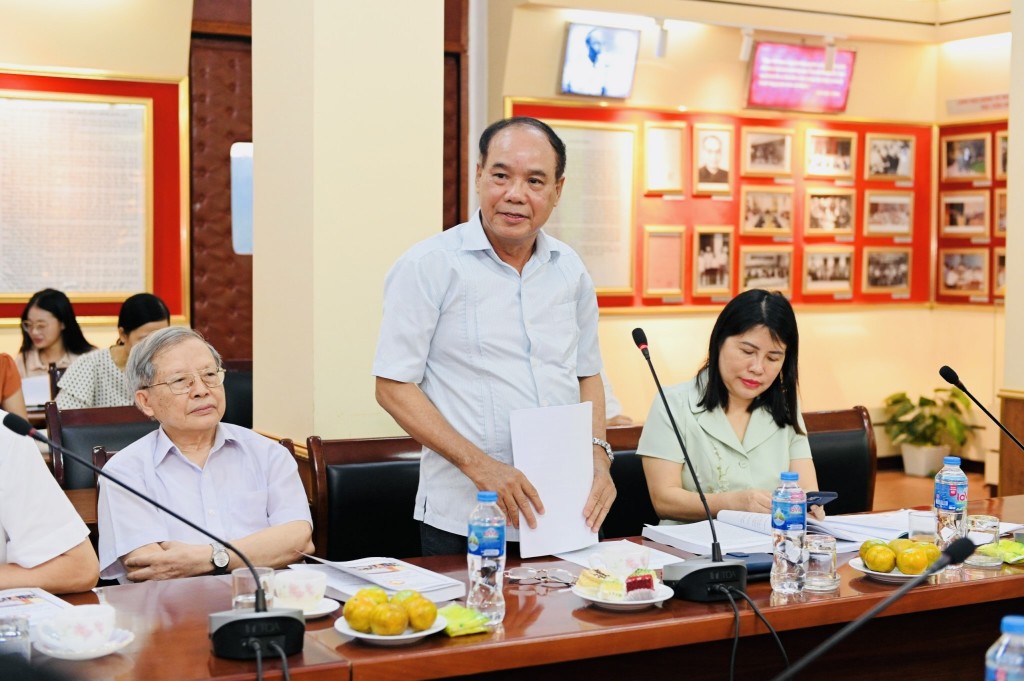
Assoc. Prof. Dr. Ngo Dinh Xay, former General Director of the Ministerial Department of Political Theory, CPV Central Committee’s Commission for Publicity and Education.
Assoc. Prof. Dr. Ngo Dinh Xay, former General Director of the Ministerial Department of Political Theory, CPV Central Committee’s Commission for Publicity and Education, delivered a presentation titled “People Supervise, People Benefit – Understanding and Some Issues Raised”. He emphasized the orientation of the country’s development in the coming years regarding people’s democracy. The Resolution of the 13th National Party Congress clearly stated that “Practice and widely promote the people’s right to mastery and the role of the people as the main subject, effectively implementing the motto “people know, people discuss, people do, people inspect, people supervise, people benefit.” The motto of practicing democracy is a consistent and enduring viewpoint of the Party of Viet Nam, and it also defines the political responsibility of the entire political system and the whole population. “People supervise, people benefit” is a new point in the Party’s documents, a true value, and the goal of building socialism that Viet Nam is striving towards.
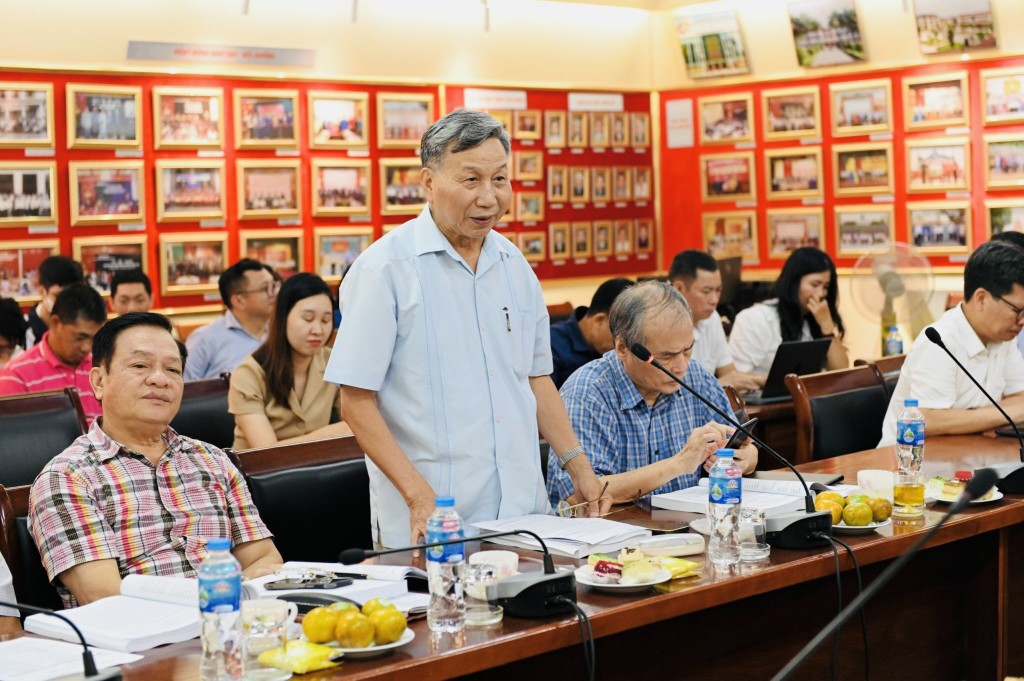
Assoc. Prof. Dr. Tran Nam Chuan, former officer of the Institute for Military Strategy, Ministry of Defense.
At the workshop, Colonel, Assoc. Prof. Dr. Tran Nam Chuan, former officer of the Institute for Military Strategy, Ministry of Defense, discussed theoretical and practical issues regarding “People know, people discuss, people do, people inspect, people supervise, people benefit”. He affirmed that “In all the affairs of the Party and the State, it is necessary to thoroughly grasp the viewpoint that “people are the root”; genuinely trust, respect, and promote the people’s right to mastery, and persistently implement the motto “people know, people discuss, people do, people inspect, people supervise, people benefit.” The people are the center and the main subject of the renovation, construction, and defense of the Fatherland. “All policies must truly stem from the lives, aspirations, rights, and legitimate interests of the people, aiming for their happiness and prosperity”; this concise yet profound message at the 13th National Party Congress highlights the position of the people and the role of implementing the Party’s motto in the process of building the Party, building a socialist rule-of-law state of the people, by the people, and for the people, under the leadership of the Communist Party of Viet Nam, which is entirely correct.
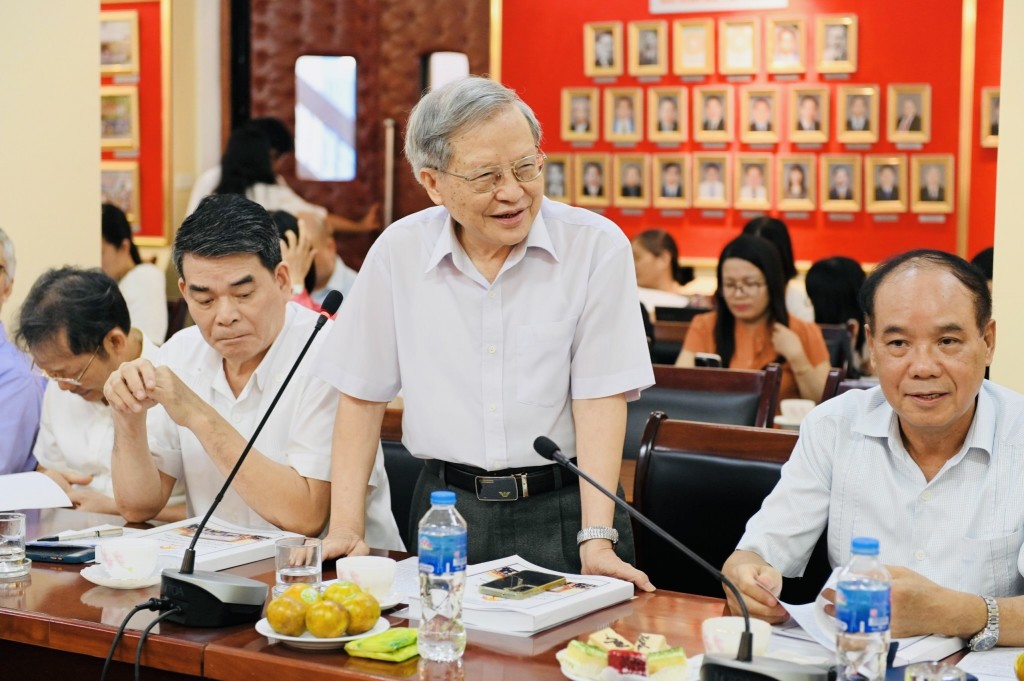
Prof. Dr. Nguyen Trong Chuan, Vice Chairman of the Viet Nam Philosophical Association, Editor-in-Chief of the Journal of Philosophical Studies.
At the workshop, Prof. Dr. Nguyen Trong Chuan, Vice Chairman of the Viet Nam Philosophical Association, Editor-in-Chief of the Journal of Philosophical Studies, clarified the basic issues arising in the current stage of the topic “People supervise, people benefit”.
The workshop received attention from academics, managers, lecturers, and researchers from universities, academies, and research institutes; 40 articles were submitted to the Organizing Committee and selected by the Editorial Board for publication in the workshop proceedings.
With the presentation “Promoting the People’s Supervisory Role in State Management,” Dr. Le Dinh Thao, lecturer at the Faculty of Interdisciplinary Sciences, affirmed that promoting the people’s supervisory role in state management is a crucial aspect of practicing democracy in society. This is a necessary task that must be undertaken to prevent the abuse of power and wrongdoings that may arise among public servants. It also provides a basis for state agencies at all levels and sectors to issue and implement policies correctly and effectively. Currently, in many places, the people’s supervisory role has not been fully promoted, resulting in limitations and weaknesses in management, delayed detection and handling of errors and deficiencies among some public servants, bureaucratic red tape, corruption, and wastefulness.
Concluding the workshop, Assoc. Prof. Dr. Nguyen Thi Thu Ha expressed her sincere gratitude to workshop participants for their active participation, contributions, and discussions. The valuable presentations at the workshops will be absorbed and developed fully and effectively, contributing to a more comprehensive and insightful understanding of the theoretical and practical issues related to the workshop theme. At the same time, it helps to improve the quality of teaching and academic research of the Faculty of Interdisciplinary Sciences in particular and NAPA in general.


